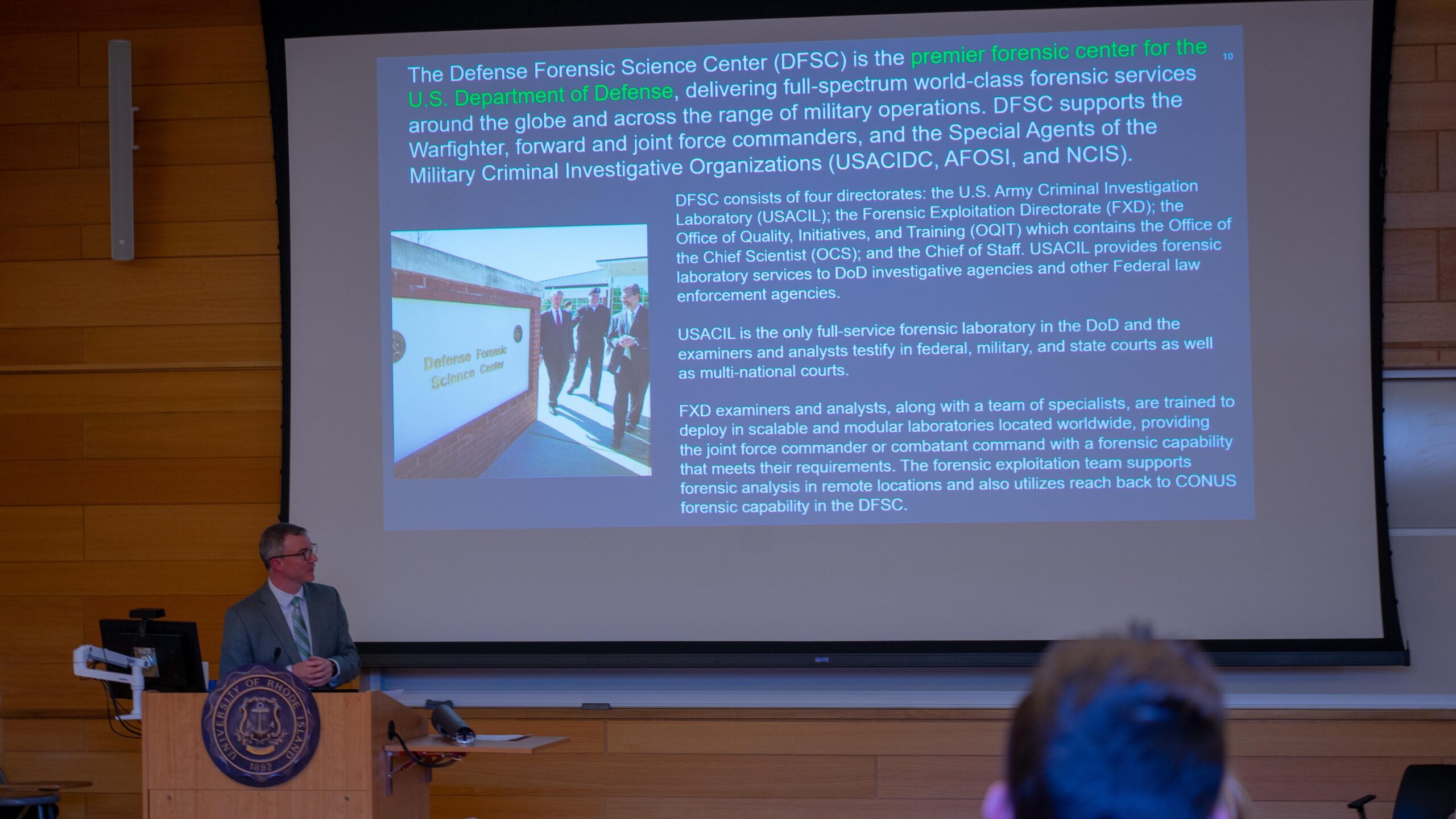Federal Consultant Colin O’Hara shared his experience and expressed the importance of his work in national security on Friday at the Beaupre Center for Chemical and Forensic Sciences.
O’Hara made several disclaimers and omitted parts of his history and job description. As a government consultant, he works with several domestic and international organizations on issues of national security.
National security is best viewed through a multi-disciplinary lens and is an important and rapidly evolving field that needs new fresh minds, O’Hara said. Cyber security, information security, military strength, environmental health, political security, health security and economic security were all mentioned as aspects of the whole of national security.
“I tend to take an expansive view and definition of the idea of our national security,” O’Hara said.
O’Hara started with a bachelor’s degree in anthropology from Rhode Island College. After several international experiences including the Republic of North Macedonia and Belize, he completed a master’s of public administration at Syracuse University, he said.
He mentioned two main reasons why he went into the field of national security; the first being the events of Sept. 11, 2001, along with his experience as an non-government organization volunteer in Belize when Hurricane Katrina hit in 2005. After talking about his history, O’Hara went on to ask the audience to find out their “why” in their own lives, like he did 20 years ago.
“I hope having covered my ‘why,’ you will all have your one as well,” O’Hara said.
National security has an impact on every citizen and must evolve with the times, O’Hara said. As his career progressed, he had to be more accustomed to new technologies and geopolitical landscapes. With new emerging fields there is a new demand for people with these proficiencies.
“We need the best, the brightest people that are pursuing advanced degrees, especially in STEM fields,” O’Hara said.
Federal consultants work on sensitive domestic and international issues, which often become caught up with strong opinions from all sides of the political spectrum, O’Hara said. People are capable of having very different opinions on both foreign and domestic policy. One of the jobs of someone working in national security is to verify information from sources.
“Don’t ask for the truth from any one source, you need multiple sources and you need to run them to the ground,” O’Hara said.
The speech was a part of professor Jimmie Oxley’s chemistry 391 course, Forensic Science Overview. She invited O’Hara to share his expertise with her students and to staff and faculty of the University of Rhode Island.
Oxley mentioned that this class has been running every semester for twenty years. This particular seminar with O’Hara was scheduled on a whim when the two met on a flight last year, Oxley said.
This talk was a part of the Forensic Science Partnership Lecture Series. They run on Fridays for the rest of the semester ,from 3:30 p.m. to 5 p.m. at the Beaupre Center. They are open to the public and live streamed online. The next lecture is on Friday, and will have U.S. Customs and Border Control Agent Bret Resiwig to explain “Why Customs & Border Patrol needs scientists.”
For more information on the lecture series and how you can sign up, visit chm.uri.edu .





